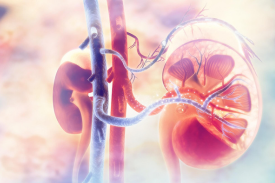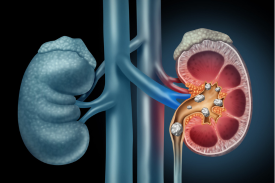Bladder cancer, a formidable opponent in the realm of urological malignancies, demands our attention and understanding. As we embark on this journey of awareness, it becomes crucial to shed light on the significance of early detection, recognize common risk factors, and explore the evolving landscape of treatment options. Additionally, we’ll highlight the Pune Nephro Urology Institute, a leading healthcare institution committed to providing cutting-edge treatments and compassionate care.
Understanding Bladder Cancer
Bladder cancer originates in the cells lining the bladder, the organ responsible for storing urine. It is the sixth most prevalent cancer in the world, affecting both men and women. The two primary types of bladder cancer are urothelial carcinoma (transitional cell carcinoma) and non-urothelial carcinoma, each presenting its unique challenges and characteristics.
Risk Factors for Bladder Cancer
- Tobacco Use: Cigarette smokers are at a significantly higher risk of developing bladder cancer than non-smokers. The harmful chemicals in tobacco can be absorbed into the bloodstream and filtered through the kidneys into the urine, directly affecting the bladder lining.
- Occupational Exposure: Certain occupations, such as those involving exposure to chemicals like benzene and aromatic amines, have been associated with an increased risk of bladder cancer.
- Age and Gender: Bladder cancer risk increases with age, and men are more likely to develop bladder cancer than women.
- Chronic Bladder Inflammation: Conditions such as recurring urinary tract infections and bladder stones may contribute to chronic inflammation, increasing the risk of bladder cancer.
- Chemotherapy and Radiation: Individuals who have undergone certain cancer treatments, such as radiation therapy or specific chemotherapy drugs, may be at an elevated risk.
Importance of Early Detection
Early detection of bladder cancer is paramount to successful treatment outcomes. Unfortunately, the symptoms of bladder cancer can mimic other, less severe conditions, leading to delayed diagnosis. Common signs and symptoms include:
- Blood in the urine (hematuria)
- Frequent urination
- Pain or burning during urination
- Lower back pain
- Pelvic pain
If any of these symptoms persist or are observed, it is imperative to seek prompt medical attention. The earlier bladder cancer is detected, the more treatment options are available, and the higher the likelihood of successful intervention.
Diagnostic Approaches
- Cystoscopy: A cystoscope, a thin tube with a light and camera, is inserted into the bladder through the urethra to visualize the interior of the bladder and identify any abnormalities.
- Urine Tests: Various urine tests, including urine cytology and urinary biomarker tests, can aid in detecting abnormal cells or substances indicative of bladder cancer.
- Imaging Studies: CT scans, MRIs, and ultrasounds may be employed to visualize the bladder and surrounding structures, helping to determine the extent of the cancer.
Treatment Options
The treatment plan for bladder cancer depends on factors such as the type and stage of the cancer, the patient’s overall health, and their treatment preferences. The Pune Nephro Urology Institute, a renowned healthcare facility, offers a multidisciplinary approach to bladder cancer treatment, incorporating the latest advancements in urological care.
- Transurethral Resection of Bladder Tumor (TURBT): This is a common procedure for diagnosing and treating early-stage bladder cancer. A cystoscope is used to remove the tumor from the bladder lining.
- Intravesical Therapy: After TURBT, some patients may receive intravesical therapy, where chemotherapy drugs or immunotherapy agents are instilled directly into the bladder to prevent cancer recurrence.
- Radical Cystectomy: In cases of advanced bladder cancer, a radical cystectomy may be recommended. This surgical procedure involves removing the entire bladder and, in some cases, nearby lymph nodes.
- Chemotherapy and Immunotherapy: Systemic treatments such as chemotherapy or immunotherapy may be recommended, either alone or in combination with surgery, to target cancer cells throughout the body.
- Radiation Therapy: In certain situations, radiation therapy may be used to target and destroy cancer cells, either as a primary treatment or in conjunction with other modalities.
The Role of Pune Nephro Urology Institute
The Pune Nephro Urology Institute stands at the forefront of urological care, offering comprehensive services for the diagnosis and treatment of bladder cancer. With a team of experienced urologists, oncologists, and support staff, the institute is committed to providing personalized and compassionate care.
- State-of-the-Art Diagnostics: The institute employs advanced diagnostic tools, including high-resolution imaging and precise urine tests, to ensure accurate and early detection of bladder cancer.
- Multidisciplinary Approach: Bladder cancer treatment at Pune Nephro Urology Institute involves a collaborative effort among specialists, including urologists, medical oncologists, radiation oncologists, and other healthcare professionals.
- Innovative Treatment Modalities: The institute embraces the latest advancements in urological care, offering innovative treatment modalities such as minimally invasive surgeries, targeted therapies, and personalized medicine approaches.
- Patient-Centric Care: Recognizing the emotional and physical challenges that accompany a bladder cancer diagnosis, the institute provides comprehensive support services, including counseling, nutritional guidance, and survivorship programs.
Conclusion: Empowering Through Awareness
In conclusion, bladder cancer awareness is a powerful tool in the fight against this prevalent and potentially life-altering disease. By understanding the risk factors, recognizing the symptoms, and emphasizing the importance of early detection, individuals can take proactive steps towards their urological health. The Pune Nephro Urology Institute stands as a beacon of hope, offering advanced diagnostics and a spectrum of treatment options, ensuring that individuals facing bladder cancer receive the highest quality care on their journey to recovery.




